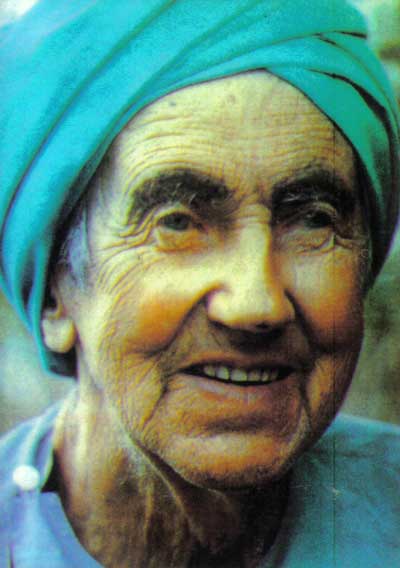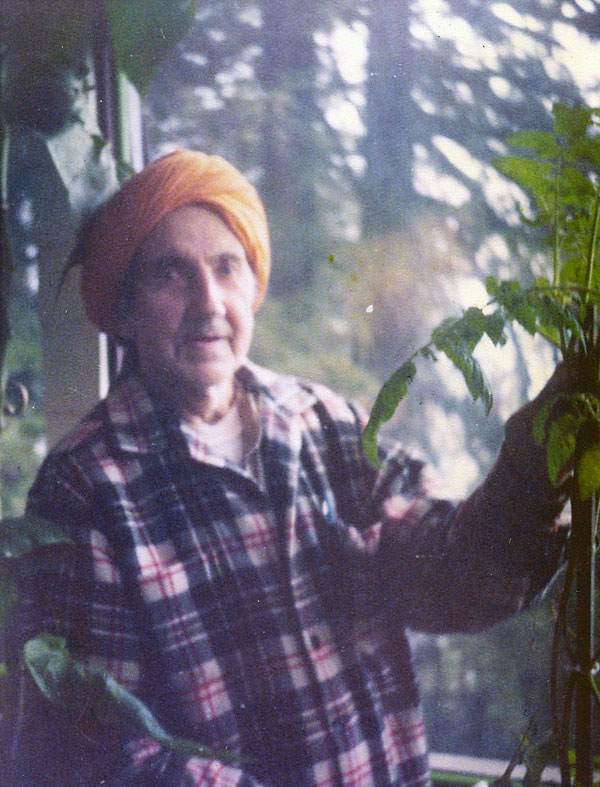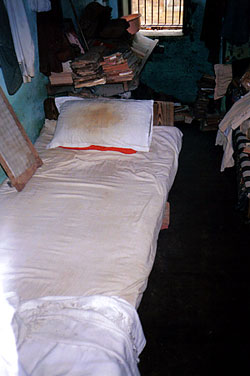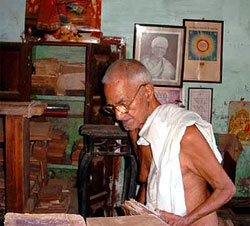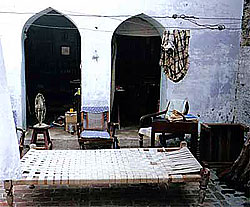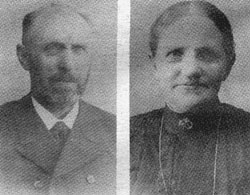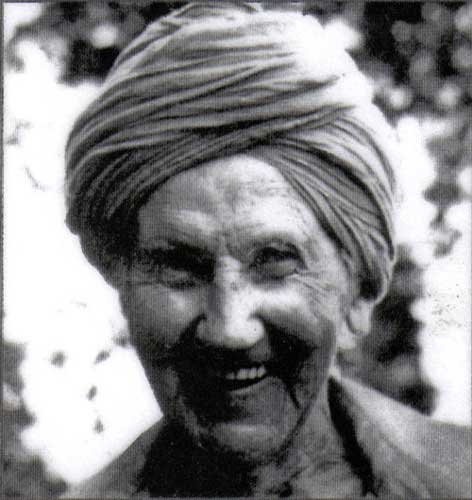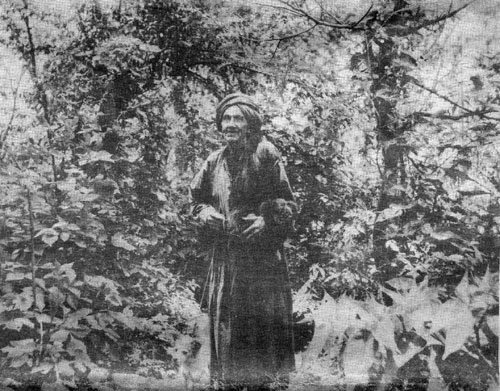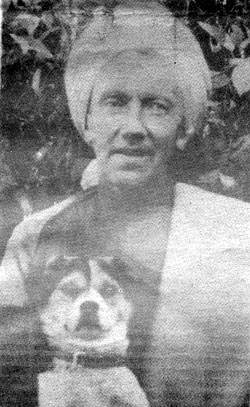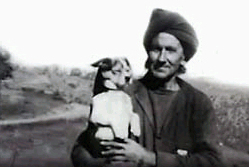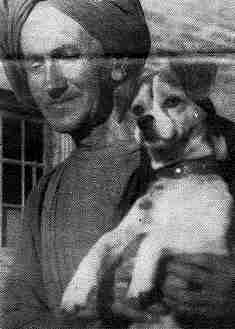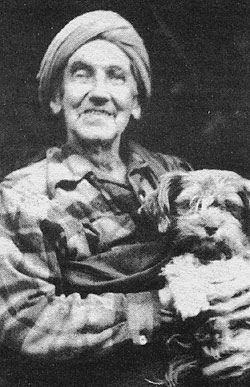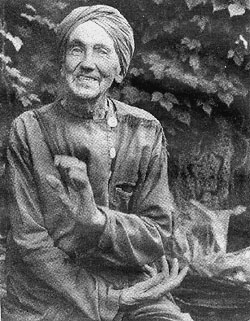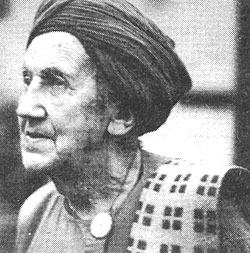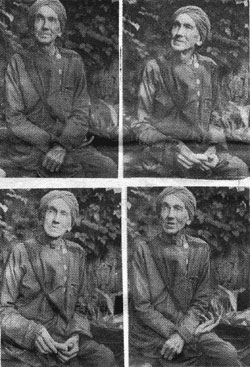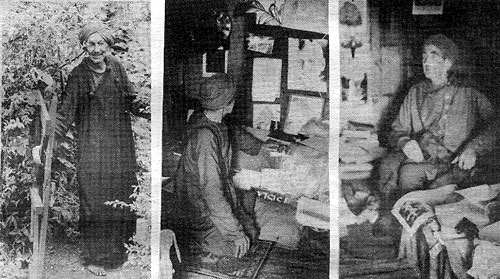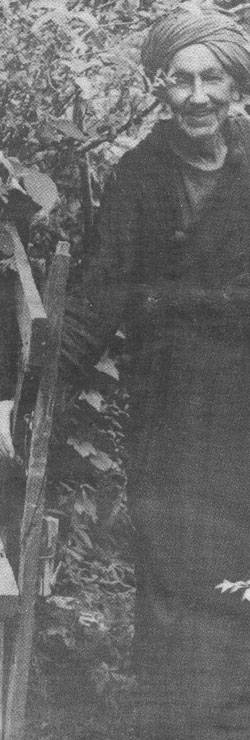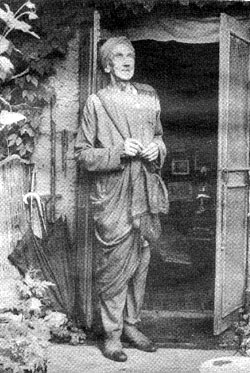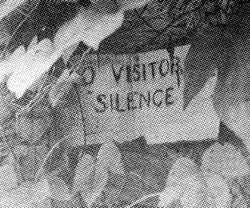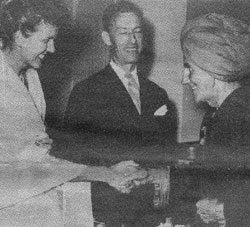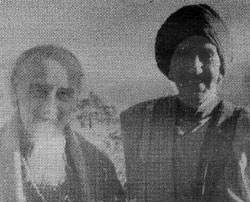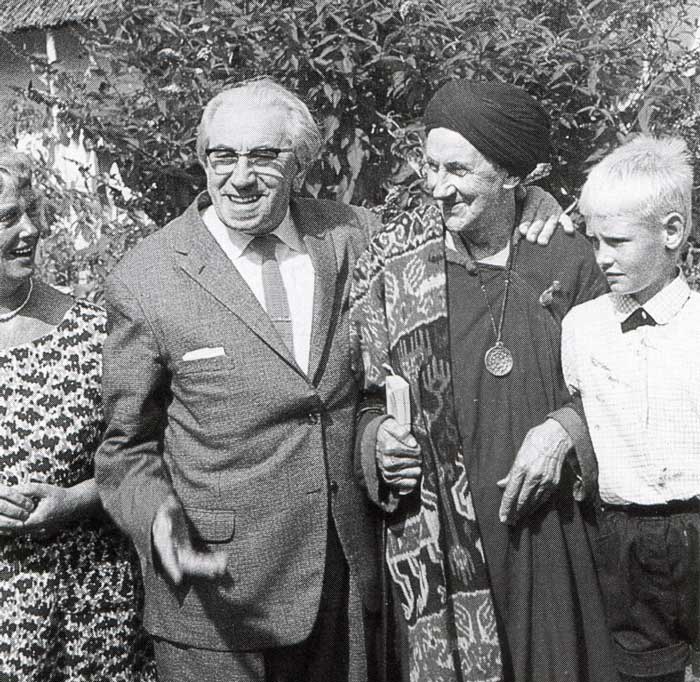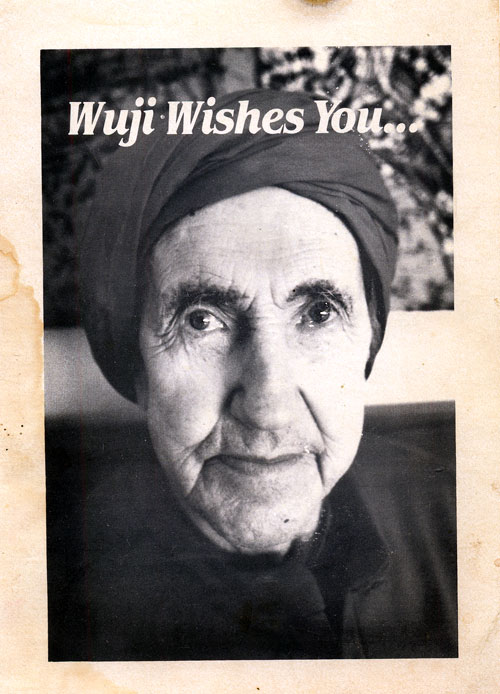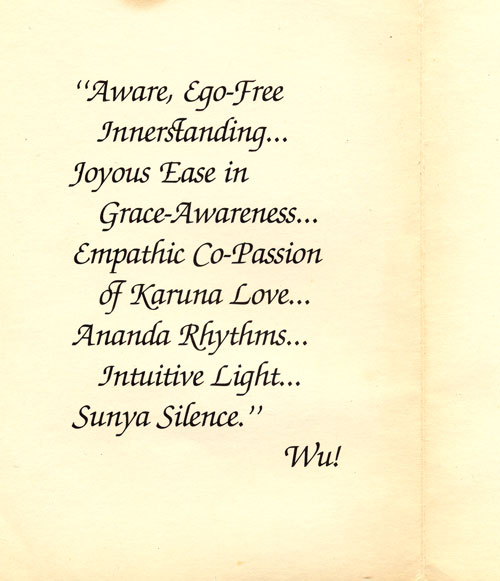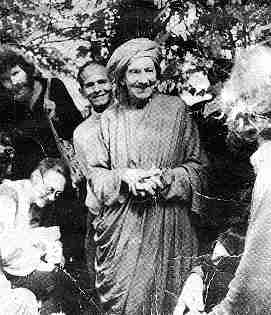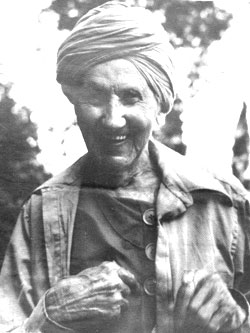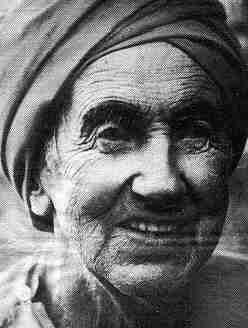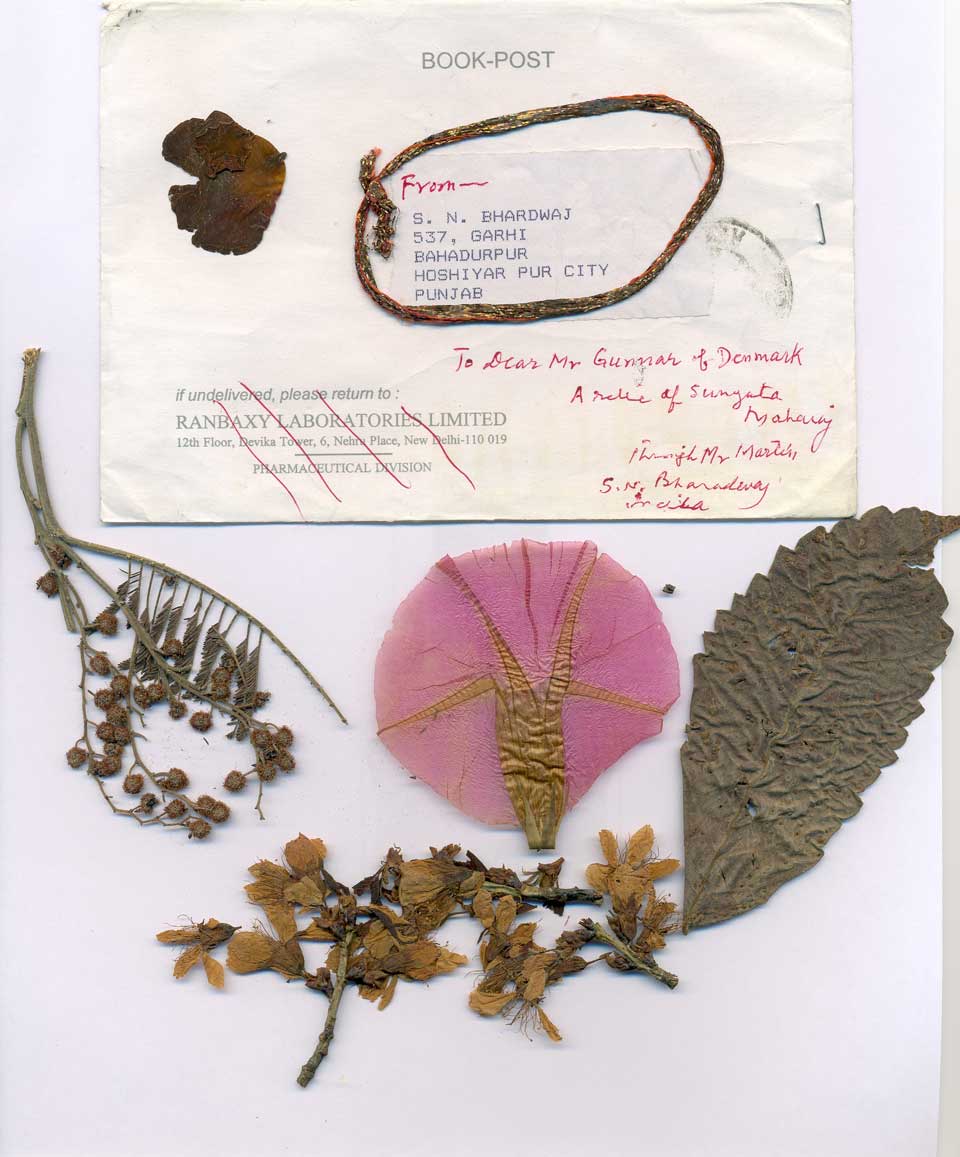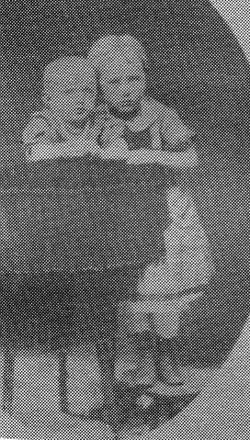|
|
| ||||||
|
|
•
Get access to hundreds
| ||||||
|
Sunyata - Alfred Emanuel Sørensen -
a Danish Mystic
In this life play I have not been in quest of Guru Meditation is not easy to express in language. Alfred Emanuel Sørensen struggled to convey his unique experiences to fellow travelers using ordinary words. Emanuel, a simple man from Denmark, explained:
"I did not belong to any cliques or creeds.
What words will you use when, walking the path
alone, you meet crossroad souls? This lone wolf spontaneously howled out his own
Wu! language.
Sunyata
remained in India for 18 months during 1929-31, traveling on his
own after a brief stay with Tagore. He discovered that travel
suited him. During this period (or possibly shortly after his
second return), he befriended a young American who was preparing
to return to the United States after many years in India. Before
leaving, the American made a final pilgrimage to Swami Ramdas to
pay homage and express his gratitude for sending him to Bhagavan
Sri Ramana Maharshi several years earlier. This young American
later became famous anonymously in W. Somerset Maugham's novel,
"The Razor's Edge."
Bhaharadwaj speaks about his life long friend Sunyata
Photos of Sunyata
The Mystery of Sri Wuji
Sunyata between Queens and Saints
"That
was 1929"...
"Now
look at that!" he chuckles, bouncing a little on the couch, his
long fingers fluttering like birds. "Can you teach Silence, Sunya?" asks one of the fifteen or so people gathered aboard the Vallejo for the weekly Tuesday evening darshan.
Some
are sitting on pillows lotus posture. Some in chairs. A few sprawled
on the plank floor. The candles circling Sunya flicker, "It is not what I say but what l am…. that sometimes gets across," declares the turbaned figure.
The tide has come in now. The houseboat rocks as the bay water slaps against the sides. The candle light has cast patterns of moving shadows on the walls and ceiling of the Vallejo. In the distance comes the lone sound of a fog horn. Someone finally coughs. Another re-adjusts his chair Sunya murmurs: "You are so mental here in the West. All the time thinking-thinking-thinking, wearing out the little brain. In, India there is the Intuitive language, the language of Silence, the language of Being. He winks at the bald fellow who always asks intellectual questions. "Where is the wisdom we have lost in "nowledge" wonders Sunya and then launches into a recitation from Sir Edwin Arnold’s poetic translation of the Bhagavad Gita:
Never
the Spirit was born;
He
tells now about his going to India following Tagore's: invitation.
He had never found a kindred consciousness in the West except in
books. Ibsen, Chekov, Shakespeare and the Oxford Book of
English Mystical Verse were his constant companions, his
"book friends." But he had read, too, the Light of Asia,
the, Gita and the Upanishads and while he had no
problem or question, he was interested to see if the consciousness
he met in these books "was a living thing still."
"Simplicity
was my great asset" He finds the Indian setting very congenial and his three month holiday stretches into eighteen. "My simplicity was my great asset in India," he explains. "I could be at home with anyone. They would sometimes say, "We don’t feel you are here." Imagine an Indian saying that about a Westerner." His other assets were his adaptability and non-critical attitude. "My mind was not deve1oped, enough to be of any trouble’," Sunyta says,. purposely preening a bit before his audience, many of whom are highly educated. He goes back to the West to tie up some loose ends and then returns to India, this time for good. He builds a stone hut, Turiya Nivas, at Kalimat, on a ridge about three miles above Almora, a hill town on the Nepalese border looking out on the vast Himalayan mountain ranges one hundred miles to the north. His name then is Emanuel Sorensen and he is known as "Brother Emanuel." But some call him "Sadhu," "Saint," and even "Bhagavan." In Bombay an Indian boy sees him in a market and calls out: "In the whole world there is nothing but God!" It is 1936. At the ashram of the great gnani, Ramana Maharshi in Tiruvanmalai, South India, Paul Brunton, author of Search in Secret India, notices an unusual westerner in Indian garb squatting by the ’wall. He motions him forward to introduce the westerner "gone native" to India’s greatest living sage. Later Ramana Maharshi tells Brunton that Brother Emanuel is "a rare born mystic."
"You
have done us the greatest honor by becoming one of us" He has had the phrase, ’Awareness is All, but it is not until this moment that the’ Viking bhai realizes that whether there is consciousness or unconsciousness - Awareness is always. Returning to his Almora hut, where he lives with no electricity or running water, he puts a second sign on his gate. Below Silence is now the word Sunyata meaning "full, solid emptiness." He becomes a friend of many: the Jawaharlal Nehru family, Krishna Prem, Sri Anirvan, Lama Govinda and, in actuality, anyone who is open to him. In 1953 he becomes an Indian subject, now taking the name of "Sunyata." Jawaharlal Nehru tells him: "You have done us the greatest honor by becoming one of us." With his bird and tree friends the rare born mystic continues to live in peace in his stone hut, walking the three miles down to town twice a week for his mail and groceries. But because of Ramana Maharshi’s’ words, Sunya’ now begins’ focusing, on his childhood. He had always had a mystic awareness but had been, "’mature enough not to shout about it." But he didn’t have the expression either. Now words begin to bubble up. Words and phrases he will later call his "Wu language." Joyous ease, delightful uncertainty, innerstanding, ego conceit of agency, affectionate detachment - the Wu language begins to appear in the voluminous ’us correspondence he carries on with Evans Wentz, Miguel Serrano, Gerald Heard and so many others not as well known but just as mature. He calls it his "scribble," or "mystic clear Viking rhunes."
"Wuji
is not a dog" So many visitors come that he builds other huts for guests but his most favored companions are two dogs. The first is Lady Yami, and when she dies Sri Chow Chu Wuji. A plucky little black-and white dog brought from Tibet in a sack with a tiger cub, Wuji quickly learned to sit on his hind legs to give namaste (blessing) to the local grocers (in exchange for a morsel of meat) Once Sunya is Invited to sit in ’the silent room " with the Great Mother of India, Ananda Mayee. Wuii goes right along inside too. Ma's disciples rage at the doggish imprudence but Ma waves them off. She gives Sri Wuji careful spiritual scrutiny. Finally, she announces: "Wuji is not a dog." But as Sunya recounts it "She never did say what he was The "hippie heads" finally find their way to Almora along with the "chief hippie, Timothy." With them come a lot of "tantric tricks,’ ego fuss and shakti business." Sri Wuji eats some poisoned meat and departs for what Sunya calls "the invisible Real." Now the droll and wuful observations of Sri Wuji begins to bubble up in Sunya’s writings. "Ramana Maharshi is Himalayan. The others are only mole hills!" says Wuji. Comes November, 1973. A fateful time as a group from the Alan Watts Society suddenly bursts into’ his sanctuary. They have been visiting Lama Govinda, Sunya’s neighbor on what is known as "Crank’s Ridge." On their way down their guide has mentioned the, rare born mystic - "He lives what so many of the Masters talk about." The "Yankee guys and girlies" are fascinated. They implore him to visit the States. The group returns to America to find Alan Watts had died the very month they saw Sunya. Now they want him more than ever. Sunya warns he has "nothing to teach, nothing to sell." The society sends a letter written, not to Sunya, but Sri Wuji saying:
"That’s
why we want you." And so 1974 the rare born mystic flies to the
New World for a four month visit, giving darshan at Esalen,
Claremont College, Palm Springs, etc. "Such beautiful differences!" Conditioned to gurus having dazzling intellects, iron wills or abundantly flowing kundalini, very few know what to make of the Silence’ of Sunyata’s full, solid emptiness. Fortunately, some do "see" him and realize what a rare being he really is. And so in 1978 the Alan Watts Society brings Sunya - who is now eighty-eight years old but looks more like a young sixty - to California for good. "California is where the new intuitive, silent race is being born," says Sunya. "And Silence is my specialty." He doesn’t mean outward silence but inward; a silence of desire, willfulness, ego antics. A very high place to begin, to be sure, but Sunya knows nothing about more preliminary approaches. "The method is to be still" he says. He favors Ramana Maharshi's selfenquiry of "Who am I?" to come to that stillness. But he doesn't want to change anyone unless they wish it. "Such beautiful differences!" he exclaims, looking through the faces of those who have come aboard the Vallejo to experience his darshan. Sunya can be quite trying for mental egojis. For he often repeats himself or seems to talk about nothing. Personal questions he often answers by talking about his own experiences. Many go away exasperated, asking themselves, "Is this guy crazy?" "Did he hear me?" An experiencing of Sunya can call up a lot of anger, distain, or boredom. "He can bore you to death", said one girl hastening down the gangplank, never to be seen again. But for others the answer is there. In the Silence In inner thoughts. In his radiant smile. In Sunya's words. Every year in April Sunya makes a six-week. "Viking raid on the gangster city of Chicago" to give darshan The Chicagoans call him, "'Mr. Nobody." "Beneath his rainbow-colored shawl, he takes to wearing a big blue badge with that name boldly emblazoned on it. Wuji loves the nobody badge and two or three times during a meeting lifts the shawl to display it. "In Chicago," exclaims the ego-free mystic to a roomful of egojies, all wanting to be somebody, "they call me 'Mr. Nobody!'" In July, 1984 Sunya moves into the remodeled home in Fairfax a devotee has bought for him. He calls her now his ,,Dollar Princess" - a person in good graces Bhagavan Shree Dollar - and the house his "palace". He accuses her of "'having fallen in knee-deep' love with Wuji." Another of Sunya's "would be followers" has a vivid dream that he "has gone his way." When told about it Sunya laughs and says, "Where would I go to? I' Am' is always with you." But in the two week heat wave that comes Sunya almost leaves the body. He calls It a "heatmare" and when asked what it was like he spreads out his huge workman's hands and says, "A spreading out.'' Death of the one eyed goldfish Now he begins to write and speak of death of "going Home." He has always promised to celebrate his 100th birthday with "one little candle, soma juice, frankincense and celestial music but now coyly says that attendance may be only for those able to leave the body. Other little funny things happen. The top branch of a new sapling in the backyard is broken off. The one eyed goldfish in the fish tank dies. Still, it seems so unlikely Sunya is in such good health... But on Sunday morning August 5th Sunya leaves his palace for the last time… According to the Fairfax police report, it is 9:14 a.m., and Sunya is at the corner of Azalea Avenue' and Sir Francis Drake Boulevard. A 1972 tan Toyota approaches from the west. It is travling over thirty miles per hour. The car's driver is a young girl who, as it turns out, lives in the same house as a young man who has been a "Sunyasin" since 1979. The girl is with her boyfriend. Both claim that the man in the turban runs out into the pedestrian crossing. She slams on the brakes, slides, and hits him in the oncoming lane of traffic. The police take Sunya to the Ross Valley Hospital. The femur bone in his left leg is broken. There are nasty scrapes and bruises but otherwise nothing serious. However, fatty deposits from the broken femur have gotten into the bloodstream. At midnight tile rare born mystic, Mr. Nobody, goes into a coma there are repeated strokes and visible signs of brain damage. Sunya's condition worsens the next day. An attendant in the intensive care unit says he drew his last breath at 6 p.m., but doctors rush in and put him on life support equipment. Plastic tubing is running out his nose; sensors are taped to his body Behind his bed a line of machines monitor his vital signs. Tapes are played of Sunya reading a friend's letters telling of having gone into the unconscious and then returning. The doctor says he expects Sunya to improve. But how much brain damage will there be? Friday, five days after the accident Sunya is taken off the life support equipment. Some color has returned to his cheeks and lips. His condition has steadied. But on Saturday his blood pressure drops. His breathing is irritated. The nurse says, "It's only a matter of time now.
Ends
and beginnings are dreams On Monday August 13th at 9 27 a.m., it is finished. Alfred Julius Emmanuel Sorensen, Brother Alfred Sunyata, Sri Wuji Mr. Nobody - the Viking body that took its birth at Aarhus, Denmark In 1890, draws its last breath. Keeping Sunya´s body alive has been a blasphemy. "A technological crucifixion, murmurs a friend of Sunya's. It's been a black comedy destined to get worse. It seems an autopsy is mandated by State law in all cases of vehicular death unless the coroner rules otherwise. The coroner wants full autopsy He can't be stopped. In cutting open the rare, born mystic who had Spent a lifetime living and proclaiming he was not the mind, not the body the coroner is "astoinshed" to find Sunya had the bodily organs of a man half his age." Declares the coroner: "He might have easily lived until 110 or 115 years of age. Sunya´ body is cremeted one day after his death and the next evening memorial services are held in the meeting room of his palace Ashes are sent to friends around the world: Denmark, Chile Canada, Belgium, France, Greece and, of course, India. A memorial service is held in Almora on his birthday and a permanent meniorial garden is to be planted at Kalimat. So ends the incarnation of our beloved Sunyata. In the writings that follow, if read intuitively, a glimpse and perhaps more will be offered of the exstraordinary being who innerstood in joyous ease and affectionate detachment the mystic wholeness of life, "Trinity beyond being" , "the translucent darkness" . All Wu! to his name. And in the Silence there is ever still the wonderous Sri Wuji intoning…
Never
the Spirit was born,
William
Pat Patterson
| |||||||
|
| |||||||
|
| |||||||



















